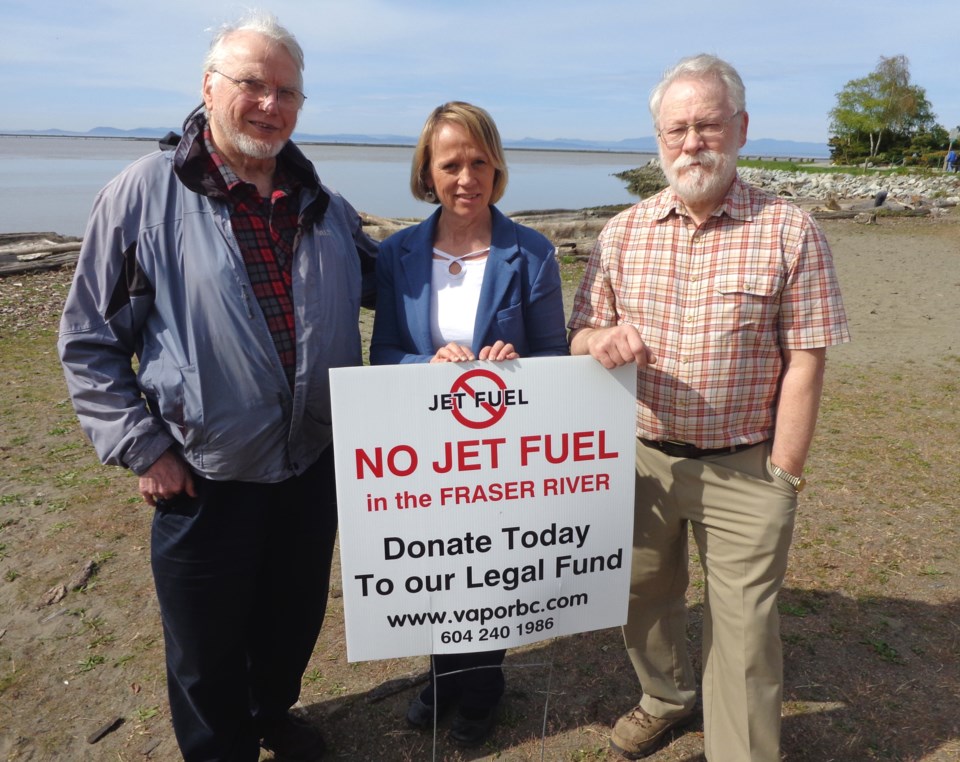Opponents of a controversial plan to build a jet fuel storage tank farm on the Richmond side of the Fraser River aren't giving up their fight.
Members of Vancouver Airport Project Opposition for Richmond (VAPOR) recently filed a lawsuit in B.C. Supreme Court seeking to quash an environmental certificate issued for the project, citing a lack of adequate public consultation.
Owned by a consortium of airlines that use YVR, the Vancouver Airport Fuel Facilities Corporation wants to ship jet fuel up the river to a tank farm that would be built on an industrial site on the south arm of the Fraser. An underground pipeline would then send the fuel to the airport.
In December, the province announced a conditional environmental assessment certificate would be issued. The decision was made after a review led by the B.C. Environmental Assessment Office, one of several parties named in the VAPOR lawsuit.
Members of VAPOR, mostly Richmond residents but several from Delta, held a media event at Garry Point Park in Steveston Wednesday morning to reiterate their concerns.
"As far as we're concerned, we've been very open and transparent with everything we've stood for and we produce, but you can't say that for the fuel consortium and the environmental review process," said Otto Langer. "A lot was done behind closed doors. We never got to a public hearing. We never got the chance to talk to Environment Canada or Department of Fisheries and Oceans, provincial Ministry of Environment staff. This has never happened in the past."
Tsawwassen's James Ronback said the consultation process was fair and transparent in the late 1980s when a similar proposal was floated and rejected. He also said he was angered when he only recently found out a petition with thousands of names submitted over a year ago by Delta South MLA Vicki Huntington was rejected due to improper formatting.
Port Metro Vancouver determined the project is not likely to cause significant adverse environmental effects with mitigation measures and conditions in place.
Several dozen conditions were attached, including deployment of a protective boom across Ladner Reach during offloading of jet fuel at the marine terminal so the area is protected in the event of a spill, and that a spill response vessel be on standby in Ladner Reach or nearby the terminal during the offloading process.
According to the proponent, the project's benefits include removing 1,000 tanker trucks per month from B.C.'s roads, thereby eliminating the existing risks of fuel spills from those trucks.
A municipal staff report to Delta council earlier this year noted the existing pipeline meets approximately 80 per cent of the aviation fuel demand at YVR and the remaining is delivered by up to 35 tanker truck round trips per day that travel through Delta. Growth in fuel demand is being met by increasing tanker truck deliveries.
However, while removing those trucks from the road is seen as a benefit for Delta, the municipality has conveyed a number of concerns, including requesting the EAO ensure a provincial spill preparedness and response review be completed and implemented.
Delta also emphasized it doesn't have the capacity or responsibility to respond to spills or fires resulting from the project.



